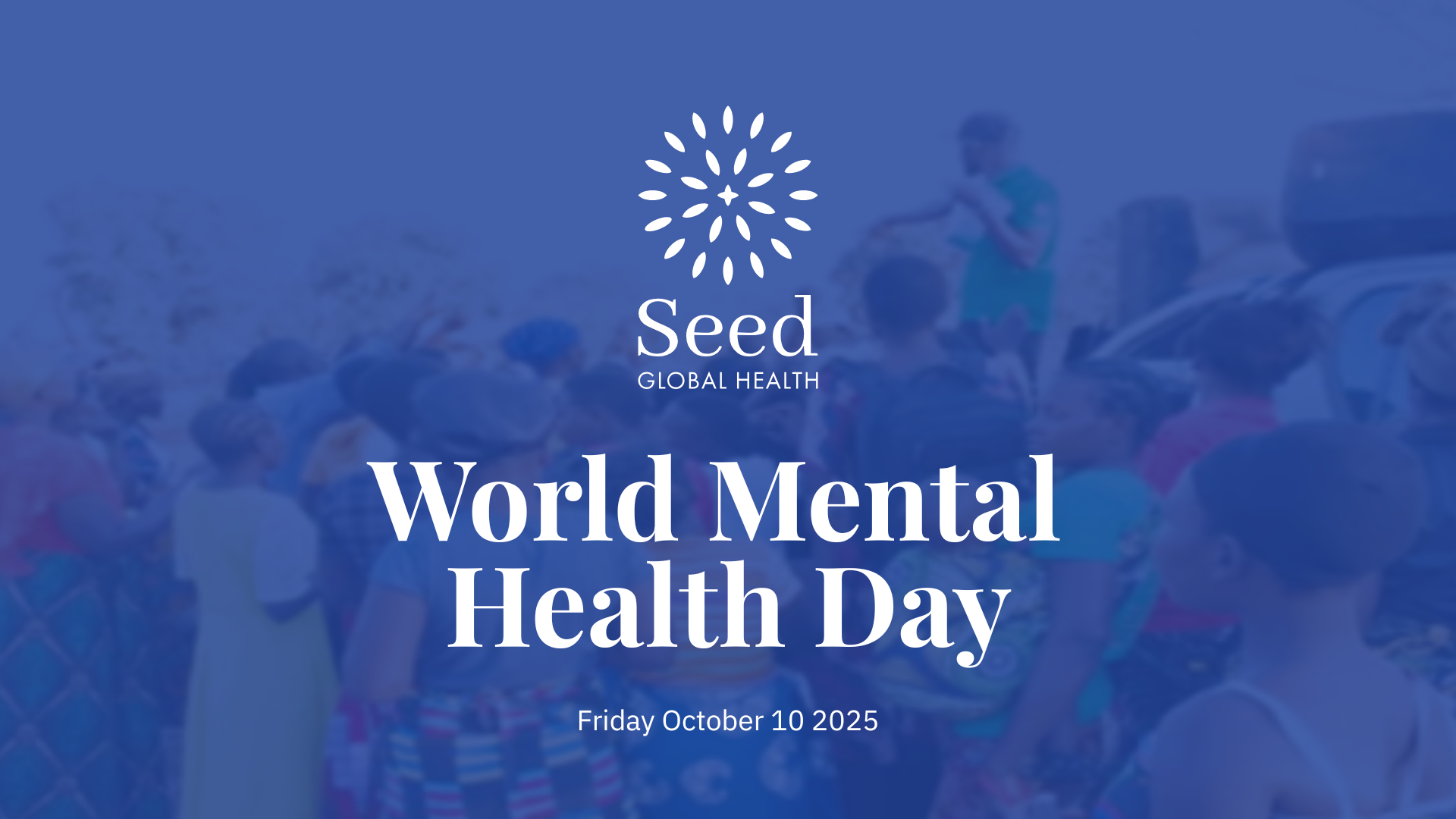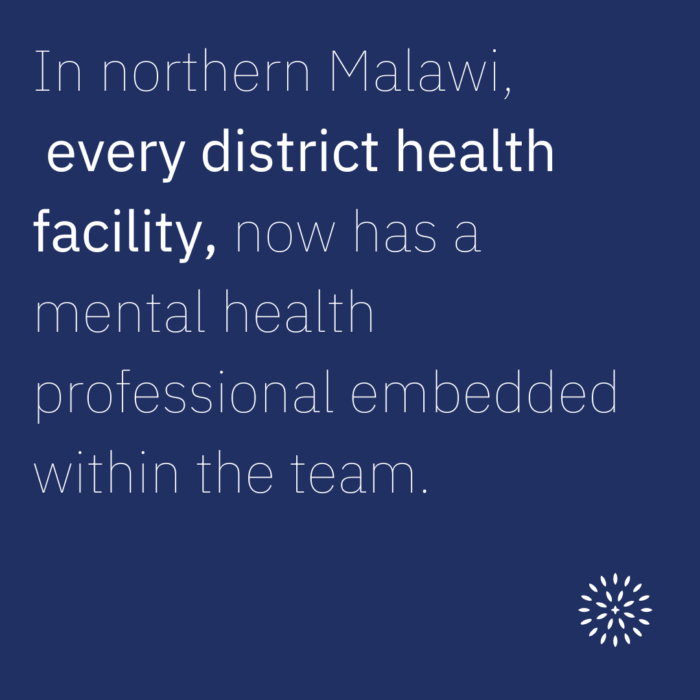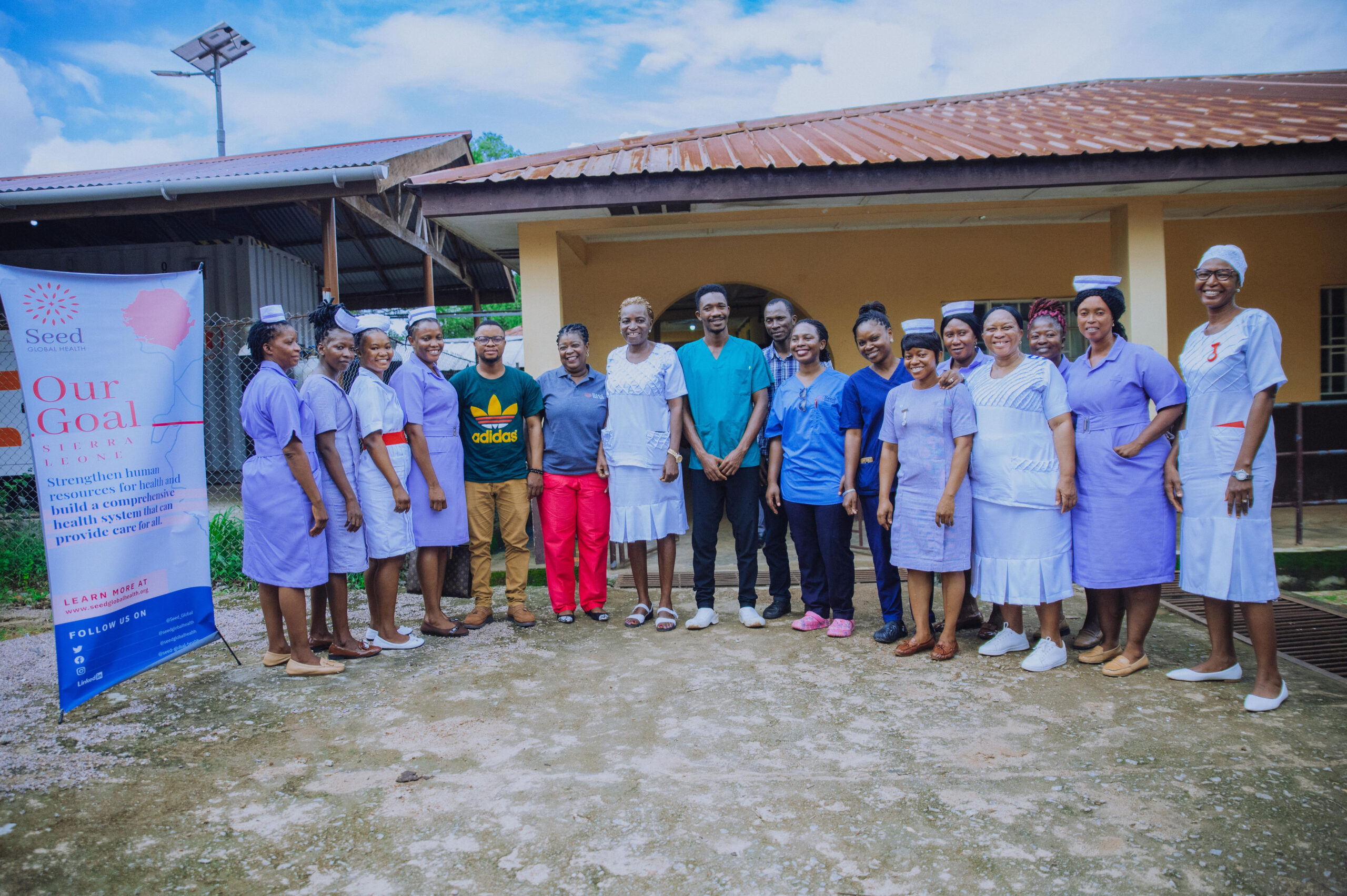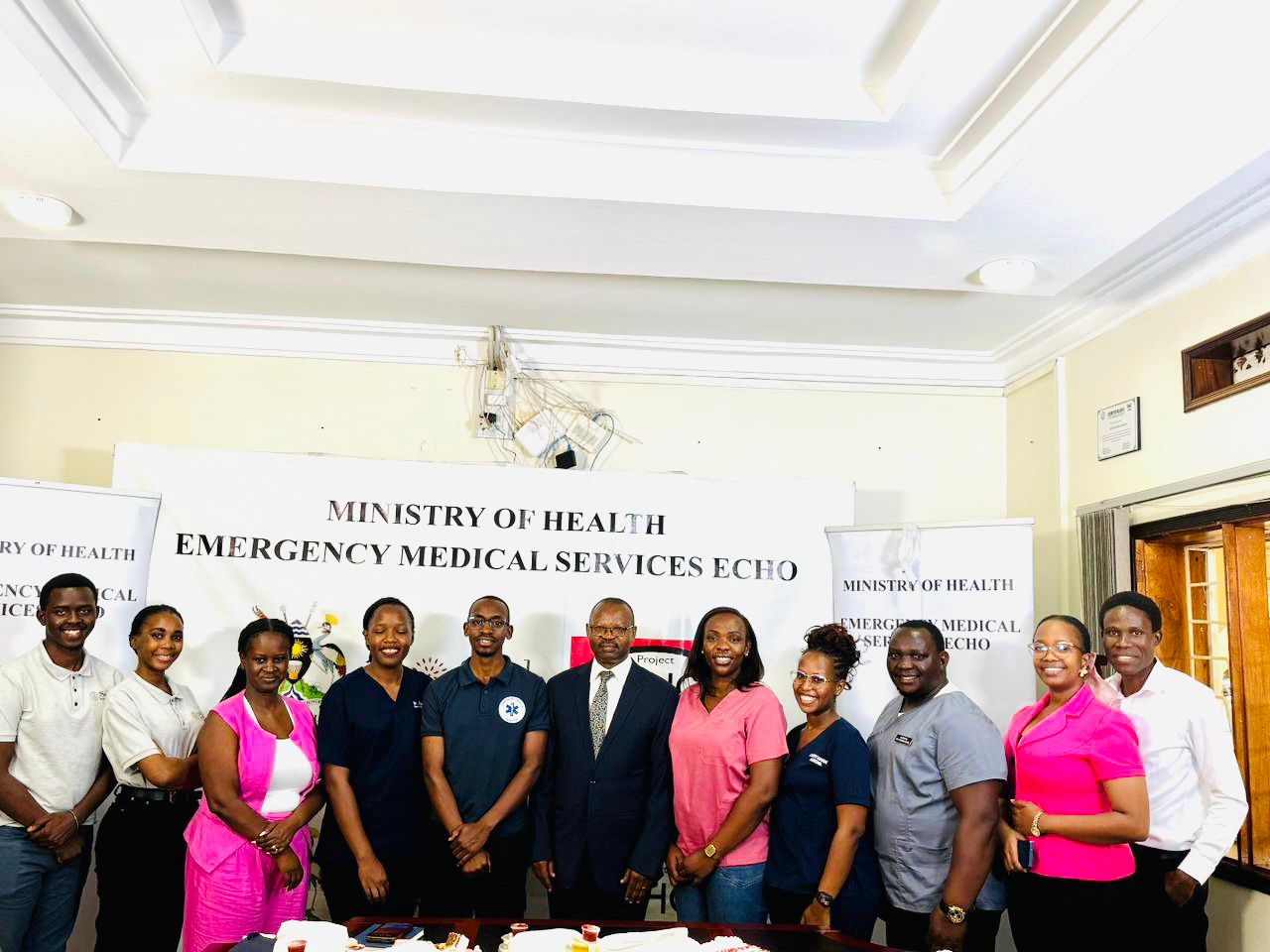
Strengthening Mental Health Care in Malawi
Malawi faces a double burden of high mental health needs amplified by intensifying climate disasters. Our partnership with St. John of God University (SJOGU) since 2019 is responding to an urgent national need: addressing common mental illnesses such as depression, anxiety, and post-traumatic stress disorder (PTSD), which affect an estimated 20–28% of Malawians.
“For years, mental illness was heavily stigmatized, often viewed as a spiritual weakness or associated with witchcraft, leading many to hide symptoms or seek care from traditional healers rather than seeking medical care from mental health care providers,” said Blessings Chikasema, Seed-SJOGU partnership coordinator. He highlights an increase in lives lost to suicide, from 126 in the first quarter of 2024 to 153 in the same period of 2025, many linked to untreated mental health conditions.
The objective of Seed’s partnership with SJOGU is to train the next generation of mental health professionals, advocate for prioritization of mental health services at primary and secondary levels of care and extend specialized care to communities that need it the most.

Extending Mental Health Services to the Community
To address access barriers, since January 2025 Seed has supported delivery of integrated community outreach clinics in five northern districts namely; Mzimba South, Nkhata-bay, Rumphi, Karonga and Chitipa, bringing care closer to communities. This initiative brings mental health service providers from district hospitals to selected health centres, where they review and provide care to mental health clients.
Walusungu Katyetye, a clinician at Chisenga Health Centre, in Chitipa district says they received a large number of people at the outreach clinic because health services were brought closer to people. “There is limited capacity at the facility, both in workforce and in access to drugs, especially for mental health, and the referral hospital in Chitipa is very far,” he said. “Clients have to walk long distances to access medication at the district mental health clinic or incur high transportation costs which can be discouraging.”
“Before, shortages of mental health staff and essential psychotropic medicines meant many clients went untreated,” Blessing said.
From March to September 2025 alone, we have conducted 38 integrated outreach clinics, providing mental health care to 285 clients, he added. He also shared that continued advocacy and testimonies from those who have received treatment are shifting community attitudes, as people begin to recognize that mental illness is treatable.
“Through advocacy supported by Seed, we successfully lobbied for mental health medications to be availed in district hospitals, reducing referrals,” notes Dr. Geldine Chironda, Seed’s mental health educator placed at St. John of God. “We also helped establish dedicated mental health clinics within the five districts Seed supports.”

Dr. Geldine noted that every district health facility in northern Malawi now has a mental health professional embedded within the team. This is also a result of the advocacy engagements with the District Health Management Teams (DHMTs) SJoG team conducts with support from Seed.
“We have established community-based support groups that identify people in need of mental health services and link them to care,” she said.
Building the Next Generation of Mental Health Workers
Seed’s partnership with SJOGU is centred on educating, training, and building skilled health care workers to meet the mental health needs in communities. Seed placed an educator (visiting faculty) at SJOGU to enhance the quality of mental health training, ensuring graduates are equipped to meet community needs.

The partnership is focused on developing a national workforce, aiming to produce 500 mental health care professionals (nurses, clinical officers, and psychotherapists) by 2030 to ensure people across Malawi can access quality mental health care.
To date, more than 60 students from SJOGU have graduated across various mental health disciplines: clinical medicine (mental health), psychiatric nursing, psychosocial counselling, and psychotherapy.
These efforts align with the Malawian government’s prioritization of mental health, highlighted by Parliament’s passing of a Mental Health Bill earlier this year, which aims to improve care and increase access to community-based services.
Additionally, new curriculum content is being developed to ensure every health professional is trained on climate and health, added Dr. Geldine.
“Our healthcare curricula historically left out climate and health linkages. When disasters strike, practitioners are unprepared, not only clinically but emotionally,” she said
By investing in education, outreach, and advocacy, Seed Global Health and St. John of God University are helping Malawi build a stronger, more compassionate mental health system, one that meets people where they are.
As the WHO warns, over a billion people live with mental health conditions globally, investing in skilled mental health workers is both a moral and economic necessity, one that can drive healthier, more resilient communities.

